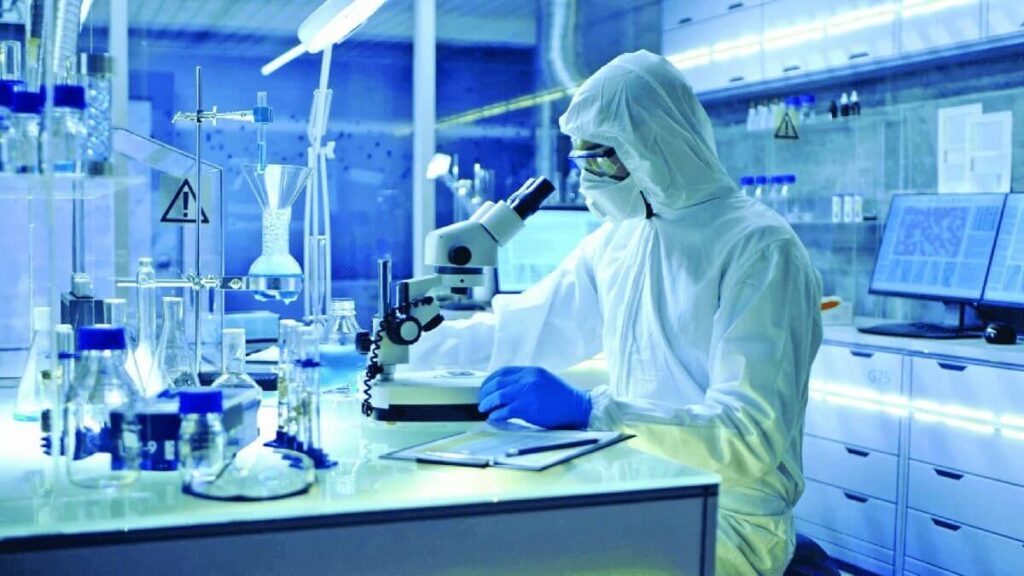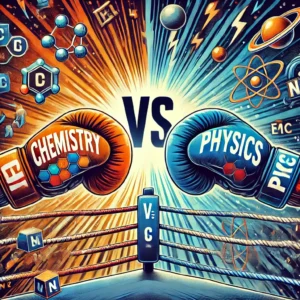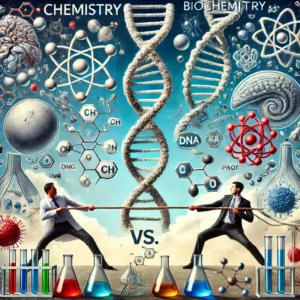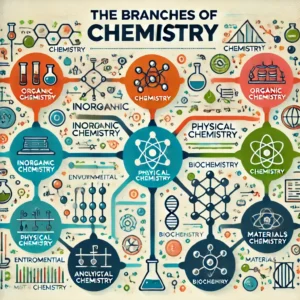In our daily routines, we often rely on water, soap, body lotions, shampoos, and plastic combs to maintain hygiene. We also consume essentials like bread, vegetables, fruits, milk, tea, porridge, sugar, and honey, among other foods. Have you ever paused to consider how these necessities are obtained? And have you wondered how our lives would be without them?
Well, some things like water and milk occur naturally. But others, like soap, body lotions, sugar, and bread, are made from other things or substances. Chemistry helps make all of these things. Even for naturally occurring substances, chemistry helps us understand them better, allowing us to use them in the right way to improve and simplify our lives. So, chemistry affects everything we do every day.
To help you figure out how chemistry affects our daily lives, let’s see a few areas where chemistry is applied
55 Examples of Chemistry in Everyday Life

1. Cleaning and Hygiene
Soaps and detergents break down grease and dirt through emulsification, where hydrophobic and hydrophilic molecules trap grime. Disinfectants like alcohol and bleach kill bacteria by disrupting their cell walls. Even toothpaste contains mild abrasives and fluoride to protect teeth from decay.
2. Chemistry in the Materials We Use
Everyday materials like plastic, glass, and metals are created and modified through chemical processes. Polymers make synthetic fibers for clothing, while alloys strengthen metals for construction. Even biodegradable materials rely on chemistry to break down safely over time.
3. Cooking and Baking
Heat triggers chemical reactions like caramelization, where sugars brown to enhance flavor, and the Maillard reaction, which gives cooked meat its distinct taste. Baking soda and baking powder cause dough to rise by releasing carbon dioxide. Emulsifiers like lecithin in eggs help blend ingredients like oil and water.
4. Food Preservation
Refrigeration slows chemical reactions that cause food to spoil, while pickling uses acids to kill bacteria. Antioxidants prevent oxidation, which can turn fats rancid or cause fruits to brown. Canning and vacuum sealing remove oxygen, reducing bacterial growth.
5. Pharmaceutical drugs are essential chemistry in daily life
Medications work by interacting with the body’s biochemistry to relieve symptoms, fight infections, or regulate bodily functions. For example, aspirin inhibits enzymes responsible for pain and inflammation. Drug formulations rely on chemistry to ensure proper absorption and effectiveness.
6. Chemistry in the Petroleum Industry
Crude oil is refined through a process called fractional distillation, where different hydrocarbons are separated based on their boiling points. Chemical processes like cracking and reforming modify hydrocarbons to produce gasoline, diesel, jet fuel, and other petroleum-based products. Chemistry is also crucial in the development of biofuels and cleaner-burning alternatives to reduce environmental impact.
7. Chemistry in Agriculture
Soil chemistry determines which crops grow best in different regions by analyzing pH levels, nutrient content, and mineral composition. Fertilizers are chemically formulated to supply essential nutrients like nitrogen, phosphorus, and potassium to plants. Pesticides and herbicides are developed through chemistry to protect crops from pests and weeds, improving agricultural yields and food security.
8. Fermentation in Alcohol and Bread
Yeast converts sugars into alcohol and carbon dioxide, making beer and wine alcoholic and causing bread to rise. Different fermentation processes create unique flavors and textures. This chemical reaction has been used for centuries in food production.
9. Breathing and Cellular Respiration
Our bodies use oxygen to break down glucose, releasing energy through a process called cellular respiration. This biochemical reaction produces carbon dioxide, which we exhale. The efficiency of this process determines energy levels and endurance.
10. Brewing Coffee
Brewing coffee involves extracting soluble compounds like caffeine and flavor molecules from coffee grounds using hot water. The Maillard reaction, which occurs during roasting, gives coffee its rich aroma and brown color. The solubility of different compounds affects taste, bitterness, and acidity.
11. Chemistry in Cosmetics
Makeup, lotions, and shampoos contain carefully balanced chemical compounds to ensure texture, effectiveness, and safety. Emulsifiers in lotions mix oil and water, while surfactants in shampoo remove grease. UV filters in sunscreen prevent sun damage by absorbing or reflecting harmful rays.
12. Chemistry in the Electronics Industry
Semiconductor manufacturing relies on precise chemical reactions to create microchips used in computers, smartphones, and other devices. Silicon, the primary material in semiconductors, is purified and chemically treated to control electrical conductivity. Battery technology, including lithium-ion and alkaline batteries, also depends on electrochemical reactions to store and release energy efficiently.
13. Water Purification
Filtration removes solid impurities, while chlorine or ozone disinfects water by killing bacteria. pH adjustments prevent pipe corrosion and maintain safe mineral levels. Reverse osmosis and activated carbon filters help remove heavy metals and organic contaminants.
14. Chemistry in Photography
Traditional film photography relies on chemical reactions to develop images. Light-sensitive silver halide crystals in photographic film react when exposed to light, forming a latent image. A developer solution then reduces the exposed silver halides to metallic silver, creating visible black-and-white images, while a fixer removes unreacted silver compounds to stabilize the image.
15. Fireworks and Explosives
The bright colors in fireworks result from metal salts reacting at high temperatures—strontium for red, copper for blue, and sodium for yellow. The explosion is a rapid oxidation reaction, releasing heat and light. Fireworks are carefully designed to ensure controlled combustion.
16. Rusting of Metals
Rust forms when iron reacts with oxygen and moisture, creating iron oxide. This process weakens metal structures over time. Protective coatings like paint or galvanization prevent rust by blocking oxygen and water exposure.
17. The Chemistry of Love and Attraction
Chemical messengers like dopamine and oxytocin influence feelings of love and bonding. Pheromones—subtle chemical signals—play a role in attraction. The brain’s response to these chemicals can affect mood, attachment, and even long-term relationships.
18. Sunscreen and Skin Protection
Sunscreens contain chemical or mineral UV filters that absorb or reflect harmful ultraviolet rays. This prevents sunburn and long-term skin damage. SPF ratings indicate the level of protection based on the sunscreen’s chemical composition.
19. Fizzy Soft Drinks
Carbon dioxide is dissolved under pressure in sodas, creating carbonation. When you open a bottle, pressure drops, and bubbles form as gas escapes. Acids like phosphoric acid give sodas their tangy taste and help preserve them.
20. Battery Power in Everyday Devices
Batteries use chemical reactions to convert stored energy into electricity. Lithium-ion batteries power phones and laptops, while alkaline batteries are used in remote controls. The efficiency of these reactions determines battery life and rechargeability.
21. Photosynthesis in Plants
Plants use chlorophyll to capture sunlight and convert carbon dioxide and water into oxygen and glucose. This process sustains life by providing oxygen and forming the base of the food chain. Photosynthesis is essential for maintaining atmospheric balance.
22. Tears and Emotional Chemistry
Tears contain proteins, enzymes, and hormones, and their composition varies based on emotional or physical triggers. Emotional tears contain stress hormones that may help with mood regulation. Reflex tears help clear irritants from the eyes.
23. Glow Sticks and Chemiluminescence
A glow stick lights up when chemicals inside mix and react to release energy as light. The intensity and duration of the glow depend on the specific chemicals used. This reaction, called chemiluminescence, is also used in forensic science.
24. Non-Stick Cookware and Teflon Coatings
Teflon is a synthetic fluoropolymer that repels grease and prevents food from sticking to cookware. It has a high heat resistance, making it ideal for cooking surfaces. However, overheating can break down its chemical structure, releasing fumes.
25. The Chemistry of Perfume and Scents
Perfumes contain volatile molecules that evaporate at different rates, creating lasting fragrances. Top notes fade quickly, while base notes linger. Chemistry helps perfume designers create balanced and appealing scents.
26. Acid-Base Reactions in Antacids
Antacids neutralize excess stomach acid through acid-base reactions. Ingredients like calcium carbonate react with hydrochloric acid in the stomach to relieve heartburn. This reaction produces salt, water, and carbon dioxide.
27. Ice Cream and the Science of Freezing
The smooth texture of ice cream depends on the size of ice crystals, which is controlled through rapid freezing and emulsifiers. Sugar and fat affect the freezing point, making the mixture softer. Some brands use liquid nitrogen for instant freezing.
28. Ink and Printing Technology
Ink contains pigments, solvents, and binders that determine color, drying time, and adhesion to paper. Chemical properties prevent smudging and fading. Different inks are formulated for printers, pens, and industrial applications.
29. Pain Relief and Anesthetics
Painkillers like ibuprofen reduce inflammation by blocking specific enzymes. Local anesthetics numb pain by preventing nerve signals from reaching the brain. Chemistry allows for controlled dosages and targeted pain relief.
30. The Chemistry of Soap Bubbles
Soap molecules form a thin film around air, creating bubbles. The film’s surface tension and water evaporation affect bubble lifespan. Light reflection on the film creates swirling colors.
31. The Changing Colors of Leaves
In autumn, trees break down chlorophyll, revealing pigments like carotenoids (yellow) and anthocyanins (red). The chemical balance of sugars and weather conditions influences the vibrancy of fall colors. This is a natural example of pigment chemistry.
32. Decay and Composting
Bacteria and fungi break down organic matter into simpler molecules, enriching soil with nutrients. This natural decomposition process involves enzymatic reactions that recycle matter. Composting reduces waste and improves soil health.
33. Chemistry in International Diplomacy
Treaties regulating nuclear weapons, chemical warfare, and climate policies depend on chemistry for monitoring and enforcement. Scientists analyze chemical signatures to track environmental pollution and banned substances. Chemistry also plays a role in developing sustainable alternatives to harmful materials.
34. Chemistry in the Mining Industry
Geologists use chemistry to identify and extract valuable minerals from the earth. Processes like flotation, leaching, and smelting involve chemical reactions to separate metals like gold, copper, and iron from their ores. Chemistry also helps in analyzing soil and rock composition to determine the best mining locations and techniques.
35. Handwashing
Soap molecules have a hydrophilic (water-attracting) head and a hydrophobic (oil-attracting) tail. When washing hands, soap traps oil and dirt in tiny bubbles called micelles, which are then rinsed away with water. This process also disrupts bacterial membranes, helping to kill germs.
36. Chemistry in Refrigerators
Refrigerators slow down chemical reactions that cause food to spoil by lowering temperature. The cold environment slows bacterial growth and enzymatic processes responsible for decomposition. Some refrigerators also use activated carbon filters to absorb odors and ethylene gas, which accelerates fruit ripening.
37. Chemistry in Artificial Sweeteners
Sweeteners like aspartame and sucralose mimic the taste of sugar but are chemically different, making them much sweeter with fewer calories. Their structures allow them to bind to taste receptors on the tongue without being fully metabolized by the body. Some artificial sweeteners are heat-stable, making them suitable for cooking.
38. Chemical Reactions in Hair Dye
Permanent hair dye contains ammonia to open the hair cuticle and peroxide to remove natural pigment. New color molecules are then deposited inside the hair shaft. The process relies on oxidation reactions that create long-lasting color changes.
39. Static Electricity in Clothing
When clothes rub against each other in a dryer, electrons are transferred, creating an imbalance of electrical charge. This leads to static cling, where clothes stick together. Fabric softeners contain chemicals that neutralize these charges to prevent static buildup.
40. The Chemistry of Tears in Cutting Chili Peppers
Chili peppers contain capsaicin, which binds to pain receptors in the eyes and skin. When you touch your face after cutting peppers, capsaicin can cause a burning sensation. Washing with oil or milk (rather than water) is more effective because capsaicin is fat-soluble.
41. Decaffeination of Coffee and Tea
Decaffeination involves chemical processes that remove caffeine while preserving flavor. Methods include using carbon dioxide, organic solvents, or water extraction. The choice of method affects the taste and quality of the final product.
42. Chemistry in Glow-in-the-Dark Objects
Glow-in-the-dark materials contain phosphors that absorb light energy and slowly release it as a visible glow. This process, called phosphorescence, can last from minutes to hours. Common phosphors include zinc sulfide and strontium aluminate.
43. Chemistry in Nail Polish and Removers
Nail polish contains pigments suspended in solvents that evaporate, leaving behind a smooth, colored layer. Nail polish remover contains acetone or ethyl acetate, which dissolve the polish by breaking down its chemical structure. This allows the polish to be easily wiped away.
44. Fermentation in Yogurt and Cheese
Bacteria convert lactose (milk sugar) into lactic acid, which thickens milk and gives yogurt its tangy taste. In cheese-making, enzymes and bacteria help separate curds from whey and develop flavors over time. The aging process allows for complex chemical changes that create different cheese textures and aromas.
45. Chemistry in Baking Soda and Vinegar
Baking soda (sodium bicarbonate) is a base, while vinegar (acetic acid) is an acid. When mixed, they undergo an acid-base reaction, producing carbon dioxide gas. This reaction creates fizzing and bubbling, which can be used for cleaning or even as a fun science experiment.
46. The Chemistry of Airbags in Cars
Airbags deploy in milliseconds during a collision using a chemical reaction. Sodium azide rapidly decomposes into nitrogen gas, inflating the airbag. The reaction is designed to be fast and controlled to protect passengers.
47. The Chemistry of Body Odor and Deodorant
Sweat itself is odorless, but bacteria on the skin break down sweat into smelly compounds. Deodorants contain antibacterial agents to reduce odor-causing bacteria and fragrances to mask smells. Antiperspirants use aluminum compounds to temporarily block sweat glands.
48. Chlorine Keeps Swimming Pools Clean
Chlorine reacts with water to form hypochlorous acid, which kills bacteria and viruses. This prevents algae growth and keeps pools safe for swimming. Proper chemical balance is important to prevent skin and eye irritation.
49. Burning Candles
Candles burn because the heat from the flame melts the wax, which is then drawn up the wick and vaporized. The vaporized wax reacts with oxygen, producing heat, light, carbon dioxide, and water. The chemistry of combustion determines how long and efficiently a candle burns.
50. Mood Rings
Mood rings contain thermochromic liquid crystals that respond to temperature changes. As body temperature fluctuates, the molecular structure of the crystals shifts, altering the wavelengths of light they reflect. This creates the illusion of changing colors based on mood.
51. The Smell of Rain (Petrichor)
The earthy scent after rain comes from a chemical compound called geosmin, produced by soil bacteria. When raindrops hit the ground, they release geosmin into the air, creating the familiar fresh smell. This scent is so distinct that humans can detect it in tiny concentrations.
52. Air Fresheners
Air fresheners contain chemicals that either neutralize bad odors or mask them with fragrances. Some use cyclodextrins, which trap odor molecules, while others release volatile compounds that trick the nose into detecting a more pleasant scent. Some sprays use ozone or activated carbon to remove odors.
53. Breathalyzers
Breathalyzers work by oxidizing alcohol in the breath into acetic acid using a chemical reaction. This process generates an electrical current, which is measured to estimate blood alcohol content (BAC). Modern breathalyzers use fuel cell technology for accurate readings.
54. Non-Stick Pans
Non-stick cookware is coated with polytetrafluoroethylene (PTFE), commonly known as Teflon. This polymer has low friction and repels water and oils, preventing food from sticking. The chemical structure of PTFE makes it resistant to heat and chemical reactions.
55. Chemistry in Forensic Investigations
Forensic scientists use chemical techniques like chromatography, spectrometry, and DNA analysis to solve crimes. Luminol, a chemical that glows when it reacts with traces of blood, helps investigators detect evidence even when it’s been cleaned. Chemical fingerprinting also identifies substances like drugs, poisons, or explosives in criminal cases.
Chemistry Is All Around Us, In Everything.
This list barely scratches the surface of the many ways chemistry impacts our daily lives. The influence of chemistry is immense. If you observe carefully, you’ll notice countless examples all around you. So, we can conclude that chemistry is everywhere and in everything, even if we don’t notice it.



